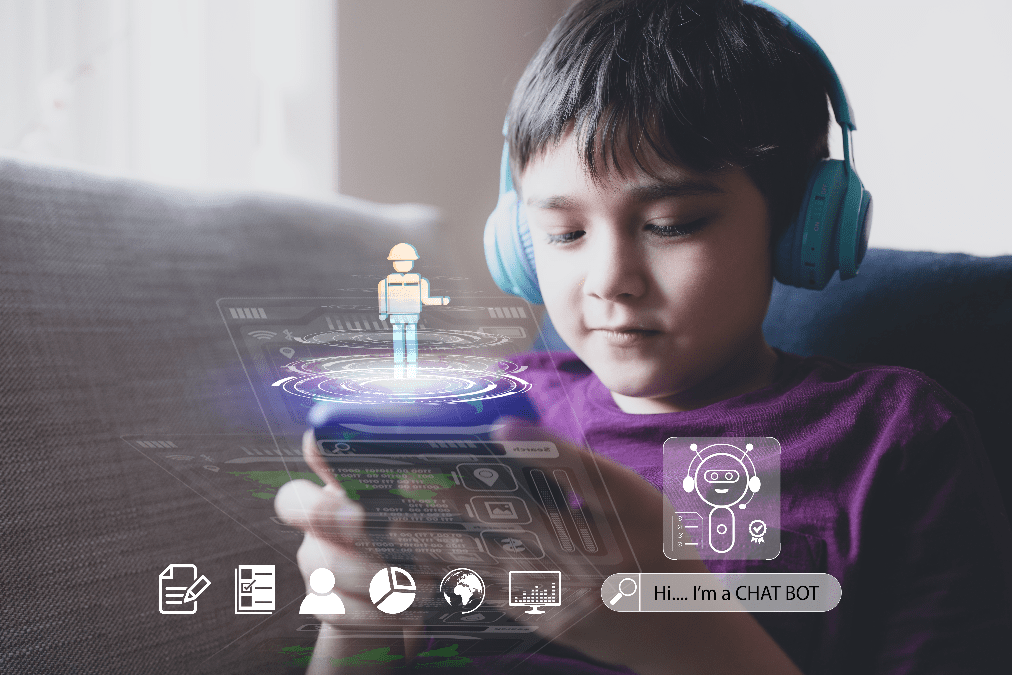Education is undergoing a remarkable evolution, with a skills-first approach set to dominate by 2030. This transformation is spearheaded by advancements in AI, reshaping our perception and interaction with educational practices. The global AI in education market, expected to reach $47.7 billion by 2030, signals a seismic shift towards AI-enhanced learning experiences.
Integration of Generative Artificial Intelligence (AI) in education lies at the heart of our approach to teaching and learning across various educational domains, from K-12 to higher education. It encompasses multiple facets of the educational experience.
Flipping the Classroom, Again!
During the early to mid-1990s, the flipped classroom concept became mainstream, enhancing teacher-student interaction with students preparing before class for more immersive in-person sessions. By 2011, Massive Open Online Courses (MOOCs) transformed higher education, enabling self-directed learning and broadening access to quality education globally, marking significant innovation in educational delivery methods.
Come 2018, the rapid advancements in natural language processing and artificial intelligence, epitomized by the development of Generative Pre-trained Transformers (GPT), marked a turning point in technological capabilities. This leap forward caught the world off guard with its profound implications and potential applications.
The rise of generative AI (Gen AI) marks a transformative era in the education value chain, impacting everything from pre-K through higher education. This powerful tool heralds a new age of student-centred learning design, promising significant advancements in educational methods and outcomes. Gen AI is poised to flip the classroom once again.
Transformative Power of Generative AI
The collaboration between humans and AI in education is going to be instrumental in shaping the future of learning. So far, in the limited applications of Generative AI in an education context, the technology has demonstrated the potential to significantly impact the educational landscape of the future. The technology’s capability to provide human-like responses to complex prompts holds promise for various applications in education, including:
- personalizing learning
- intelligent tutoring systems
- adaptive assessments and personalized feedback
- custom learning pathways
- AI-driven virtual tutors and learning assistants
- AI-driven teaching assistants for teacher support
- homework/assessments review and grading systems
AI offers the prospect of revolutionizing classrooms through tailored learning experiences and cutting-edge teaching methodologies. Creative applications of AI can transform the roles of educators and education content development and learning resources providers by supporting diverse aspects such as curriculum planning, design, development, and delivery of learning. It aids in content curation, offering value-added knowledge pertinent to each learner’s goals.
Addressing Challenges and Ethical Considerations
The integration of AI in education is met with a mix of excitement and caution. As we begin to grasp this technology’s capabilities, its emergence has sparked intense discussions among all participants in the educational ecosystem, including governments, policymakers, think tanks, educators, teachers, students, and parents. Despite the many benefits, the integration of generative AI in education faces challenges, including data quality and bias, privacy and confidentiality, educator training and adaptability, dependence on technology, policy decisions and regulations, and managing the abundance of AI solutions.
In the face of these challenges, the potential of AI in education remains vast and promising. With careful consideration, thoughtful policy-making, and ongoing collaboration among all stakeholders, AI can significantly enhance the educational experience, offering more personalized, efficient, and inclusive learning opportunities for students worldwide.
Future Outlook
Generative AI is poised to revolutionize the educational landscape by enhancing content development, learning personalization, assessment techniques, and educator autonomy. By analyzing learning preferences and patterns, generative AI can adapt content to personalize learning and recommend effective teaching methods, benefiting both teachers and learners. Generative AI holds the potential to transform the educational publishing and EdTech sectors as well, enhancing productivity, reducing operational costs, and adding value for all participants in the education sector.
As the impact of AI on education is still unfolding, we can see a universe of opportunities and new possibilities, unlocking avenues for innovative teaching strategies, creating immersive learning environments, and fostering a more inclusive and adaptive educational system.

